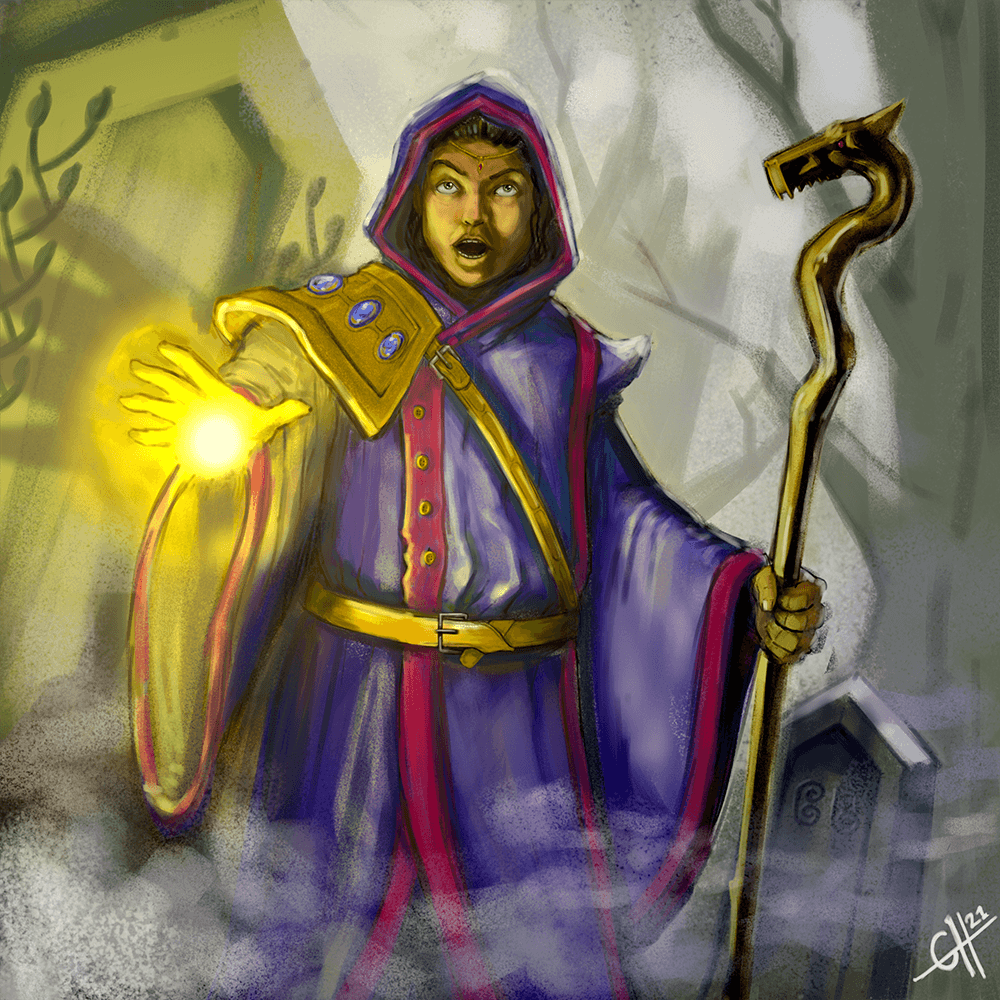
World-shaping Power At Dollar Store Prices
I want to talk to you about magic. Make no mistake; magic is rad. Commanding a thunderstorm, reversing the flow of time, teleporting across the continent in a blink of an eye… I love it. Magic is a lot of what makes fantasy, well, fantastical. But there is a fundamental problem with magic in Dungeons & Dragons (and any other RPG system where magic is prevalent): meaningless cost. Did I say “problem”? I meant “storytelling opportunity.” I’m going to tell you how to make magic matter, whether you’re the madman hurling a fireball into a small room or the game master looking sadly at your monsters’ hit points when said fireball goes off. We’re going to look at ways to increase the narrative cost of slinging spells in order to tell more compelling, character-driven stories.Â
Raising Stakes By Having A Stake In It
What does magic mean for your character? For your world? What is it like to bend or even break reality? Every conjured illusion, every molding of earth, should feel important and impactful. All too often, however, D&D and systems like it turn the magical into the mundane. Your lightning bolt is just another weapon, your ethereal hand just another tool. “But Gabriel,” you so intelligently interject, “D&D places restrictions on magic use. Spellcasters only know so many spells, can only cast so many spells per day, and powerful magic requires expensive material components.” Those are all limitations, sure, but only in gameplay mechanics. I want your spellcasting to be special in the narrative. So how do we convey that your magic is extraordinary in the story? I’ll let you in on a little writer’s secret:Â
The easiest way to show meaning is for actions to have an emotional cost.
Let’s use the blaster caster classic of Fireball as an example. Per the rules of D&D 5th Edition, you wave your hands around and say something vaguely arcane, then you chuck a ball of bat guano and sulfur at your problem, and it explodes in a 20-foot radius for a bunch of fire damage. Gameplay-wise, you have successfully damaged everything in a relatively large area. But what have you done story-wise? What if every time you made that big boom, you had to give a piece of your mind to the consuming flame? What if every time you cast Fireball, you burned away a childhood memory? Now that Fireball has meaning because you had to sacrifice a part of yourself to do it. Every time a group of baddies ambushes you with murder in their eyes, you’ll have to decide if they’re worth your last memory of your kid brother. And just like that, we have emotional, character-driven actions moving the story.
Balancing Your Arcane Checkbook
What’s the Cost?Â
Perhaps the Fireball example is too much for your table. There is a fine line between giving an action a meaningful cost and making that action functionally unusable in all but the direst situations. If you’re a GM, talk to your players about what matters to their characters and what extra narrative cost they’d be willing to pay to make their magic more storied. If you’re a player, this is a good opportunity to figure out what’s important to your character and what part of that you’d be willing to give up on a semi-regular basis. The balance point between sacrifice and playability, between cost and fun, will be different from campaign to campaign and from character to character. Figuring out that balance is a conversation, not a hard-and-fast rule.Â
The main goal of all of this is to tell better stories, not to rob your characters of what makes them unique. Fiddling with the cost of magic is one of many shortcuts to a more interesting and engaging narrative, but like any tool, it can ruin your fun if overused. Don’t panic. Half the fun of this method is in figuring out how far your character is willing to go, and fine-tuning from session to session is not only perfectly normal but also keeps you engaged with your character in ways you didn’t expect.
Please, Sir. I Want Some More Examples
Fear not, dear reader. I have more enticing examples to get your creative gears a turnin’:
- Warlocks in D&D have a built-in cost to their magic – their dark pact with some flavor of eldritch entity – and so we can amplify what’s already there. Every use of magic could bring that entity closer to the real world, accelerating an inevitable conflict between its unfathomable schemes and the party’s goals, with the Warlock caught between their patron and their friends. I’ve seen so many, countless variations of “the Warlock has to choose a side” stories that I’m starting to think this story beat is the point of playing a Warlock.
- Losing your humanity (or elf-inity? orcishness?) is a tried-and-true classic. It can get a bit tropey and cliché, but “what does it mean to be human?” is ultimately an endless trove of interesting stories. If using magic chips away at your personality, then you are writing a compelling character arc every time you wave your sparkly fingers around. Big Ship of Theseus. Much search for identity.
- Your magic could cause your physical body to weaken or change. This one is tailor-made for D&D Sorcerers whose source of magic is their own arcane bloodline. Scorched skin for fire spells, rotting features for necrotic – as graphic or as vague as you and your table can stand. Illusion spells could make you slowly more transparent. Transfiguration spells could cause your fingers to turn to stone or to water, and on, and on. You can have a little body horror with your magic as a treat.
What if you didn’t pay the price for your magic, but someone else did? This idea is ripped straight from the pages of Dr. Strange comics (The Last Days of Magic storyline, if I remember correctly). Every time you teleport yourself to safety, some random person catches a cold. Or maybe not a random person, but another member of the party loses a year of their life when you animate a suit of armor. This is another deep well of emotional storytelling and is extra spicy for the heroic, self-sacrificing types like Clerics and Paladins, as it puts their morals in direct conflict with their actions.
